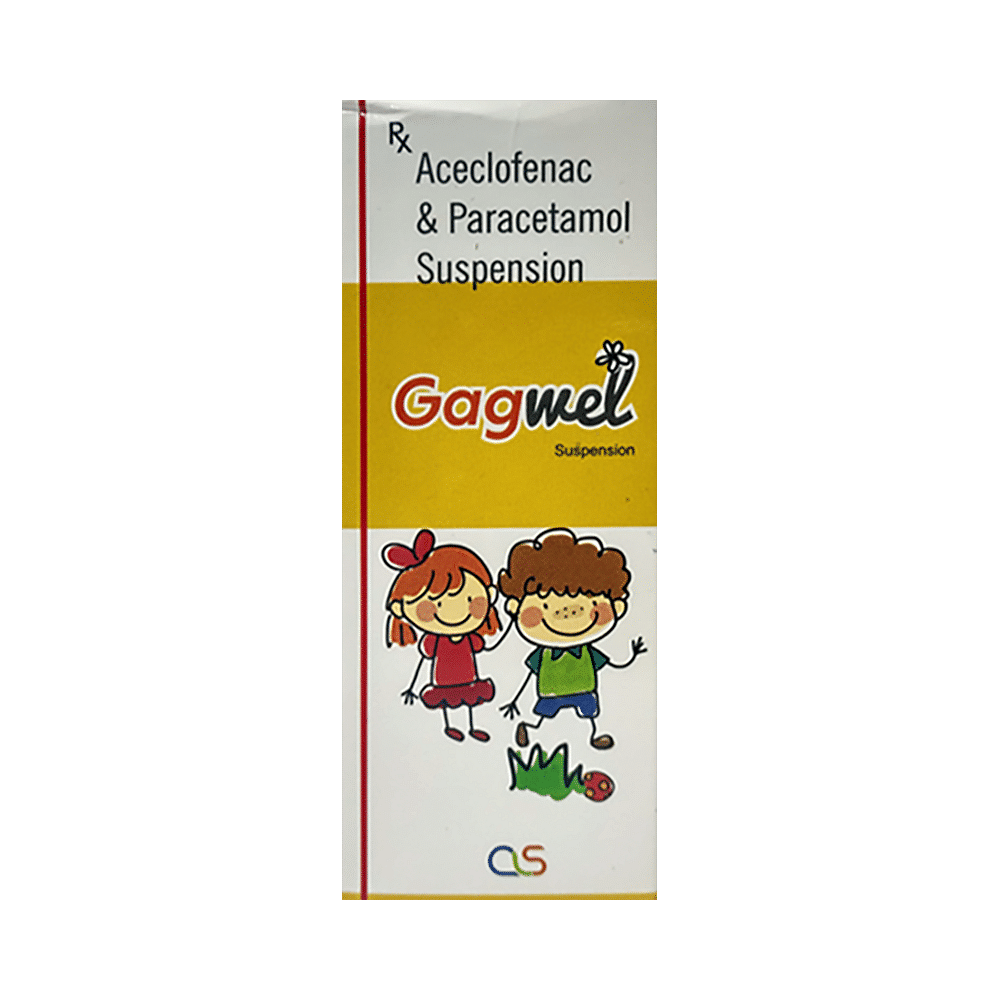
Mandnac P Oral Suspension
Manufacturer
Mandlive Healthcare Pvt Ltd
Salt Composition
Aceclofenac (50mg) + Paracetamol (125mg)
Key Information
Short Description
Mandnac P Oral Suspension helps lower body temperature (fever) and reduce pain and inflammation (redness and swelling) both in infants and children.
Dosage Form
Oral Suspension
Introduction
Mandnac P Oral Suspension is a medication that helps to lower body temperature (fever) and reduce pain and inflammation (redness and swelling) in infants and children. It is available in the form of an oral suspension.
Directions for Use
Give this medicine after food to avoid abdominal discomfort in your child. Maintain a log of your child's temperature. If you do not see any improvement, contact your child's doctor for advice.
How it works
Mandnac P Oral Suspension comprises two active ingredients: Aceclofenac and Paracetamol. These medicines work by blocking the action of chemical messengers responsible for pain, fever, and inflammation (redness and swelling).
Quick Tips
Give plenty of fluids to your child to ensure proper body hydration (water-levels) Give your child a balanced diet Encourage your child to have optimum sleep since sick children get tired soon and getting plenty of rest helps them recover faster. Stop the medicine and consult your child's doctor in case your child exhibits allergic rash or stomach pain soon after taking this medicine.
Related Medicines

Gagwel Oral Suspension

Mlofen P Oral Suspension

Rechlo-P Oral Suspension

Lynace P Oral Suspension

Cubinac-P Oral Suspension

Binpain P Oral Suspension

Acerant-P Oral Suspension

Luzipain P Oral Suspension

Ara P Oral Suspension

Acetis-P Oral Suspension
Frequently asked questions
Can I increase or decrease the dose of Mandnac P Oral Suspension for my child by myself according to the severity of illness?
No, it is not recommended to alter the dose of the medicine without consulting a doctor. While increasing the dose may lead to toxicity, decreasing it may cause recurrence of symptoms. Therefore, speak to your child’s doctor if you feel a change in dose may be needed.
How much Mandnac P Oral Suspension should I give to my child?
The prescribed dose will be determined by your child's condition and body weight, provided by your doctor. Adhering to the prescribed dosing schedule ensures safe and complete recovery for your child.
How should Mandnac P Oral Suspension be stored?
Mandnac P Oral Suspension should be stored at room temperature in a dry place, away from direct heat and light. Always keep all medications out of reach and sight of children to prevent accidental intake.
Can all children be given the same dose of Mandnac P Oral Suspension?
No, Mandnac P Oral Suspension cannot be given to everyone in the same dose. The doctor decides the appropriate dose based on your child's age and body weight. This dose will even change for your child when he/she becomes older. Never give any dose of this medicine without consulting a doctor. Adhering to your doctor’s instructions is crucial for maximum benefit.
When will my child feel better?
You may require several days or even weeks of Mandnac P Oral Suspension administration, depending on the severity of the infection. Continue giving this medicine in the dose and frequency advised by your doctor, and you will observe a decrease in pain or fever. Your child will begin feeling better. However, if they continue to feel unwell after completing the full prescribed course, consult your doctor immediately.
Are there any serious side effects of this medicine for my child?
While Mandnac P Oral Suspension is generally well-tolerated in children, contact your doctor immediately if you notice persistent vomiting, body swelling, decreased urine frequency, or an allergic reaction. These are signs that require urgent medical attention.
Are there any specific contraindications associated with the use of Mandnac P Oral Suspension?
Mandnac P Oral Suspension is considered harmful for patients with known allergies to any component or excipients of this medicine or those with known allergies to other painkillers (NSAIDs). It is advisable not to administer this medication in individuals with a history of stomach ulcers, active, recurrent stomach ulcer/bleeding. It's also best to avoid it in patients with a history of heart failure, high blood pressure, and liver or kidney disease.


